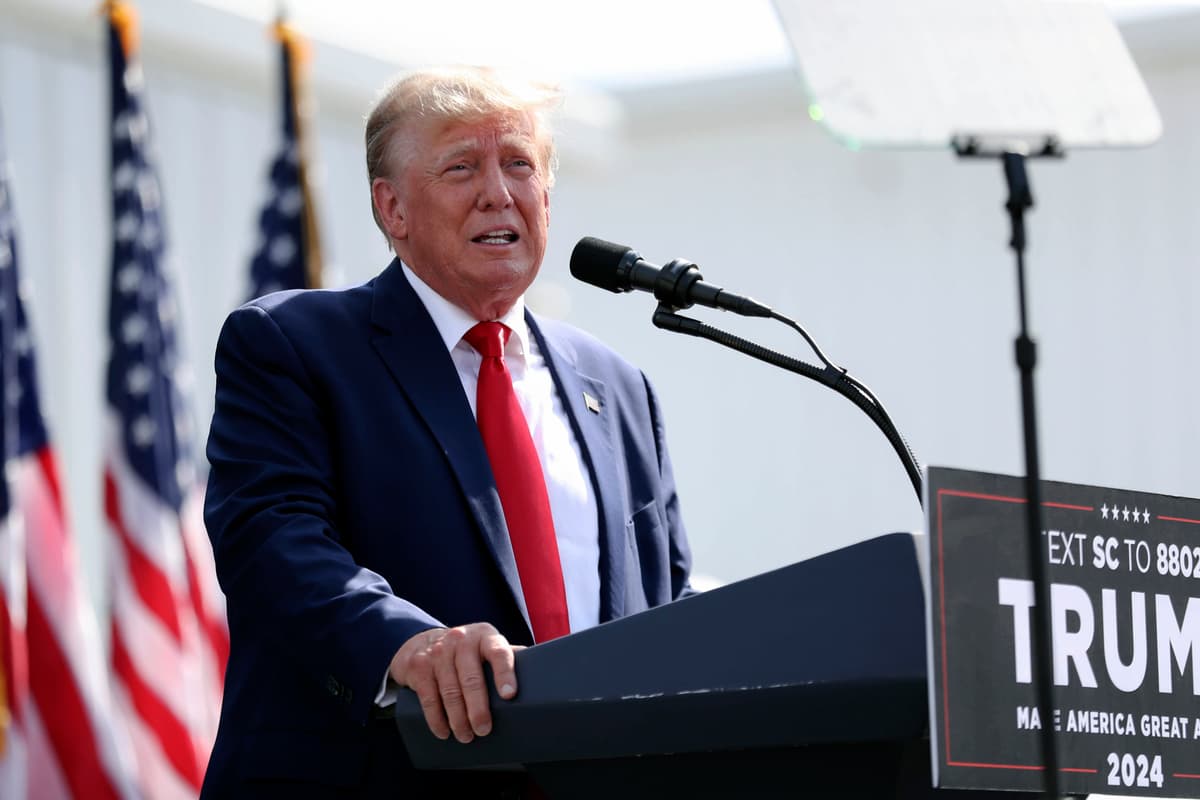Trump Announces a Wildcat Strike Against Participating in His Trial for Alleged Crimes Relating to January 6
The 45th president argues that allowing an appeal but proceeding in the meantime is as incoherent as, to quote a judge in another case, a ‘lock without a key, a bat without a ball, a computer without a keyboard.’

President Trump’s intent to appeal a ruling denying him presidential immunity in his January 6 criminal case — and his request that the whole enterprise be halted while that issue is adjudicated — sets into motion a constitutional clash that tests multiple tiers of America’s judiciary.
The notice of an appeal and request for a stay were filed to Judge Tanya Chutkan. The judge accuses Mr. Trump of harboring monarchical aspirations and assuming positions on presidential power alien to the vision of President Washington and Alexander Hamilton. Now, the 45th president wants a higher court to halt her proceedings pending a final judgment on immunity.
Mr. Trump’s appeal, whose first address will be the United States Appeals Circuit for the Columbia District but could go to the Supreme Court, could take months to be decided. In the interim, Mr. Trump’s attorneys write to Judge Chutkan that the filing of his “notice of appeal has deprived this Court of jurisdiction over this case in its entirety pending resolution of the appeal.” They add that a “stay of all further proceedings is mandatory and automatic.”
The request for a halt comes as Judge Chutkan’s trial date of March 9 is just three months away, and reports of paperwork relating to jury selection sent in the post are beginning to surface. Now, Mr. Trump ventures that “all current deadlines must be held in abeyance” until his bedrock objections to the case — presidential immunity and double jeopardy — are weighed by higher courts.
Judge Chutkan has shown herself to be a tenacious scheduler who is allergic to delay and committed to beginning her trial the day before “Super Tuesday” on the Republican primary calendar. Immunity appeals like this one, though, must be decided before a trial can be held. The rub is whether pretrial motions, discovery disclosures, jury selection preparation, and the like must freeze.
Mr. Trump announced his intention to proceed as if that freeze had already taken hold “absent further order” from Judge Chutkan. For now, he is boycotting the proceedings. That means that his side will no longer participate in the cadence of the case, absent a direct order. For ballast, the former president cites an appellate ruling that it “makes no sense for trial to go forward while the court of appeals cogitates on whether there should be one.”
That refusal to participate — a stance that goes beyond appeal to something more akin to conscientious objection. If she wants the case to proceed, Judge Chutkan will likely have to compel Mr. Trump’s team, which could prompt a subsidiary appeal. For now, the former president appears to be borrowing a page from Herman Melville’s “Bartleby,” a copyist who, when presented with tasks to complete, replies, “I would prefer not to.”
The 45th president ventures that “concerns regarding judicial resources and costs from continued litigation during the pendency of the appeal — including financial, reputational, and political costs to President Trump and this country” tip the scales toward a pause. Mr. Smith, who is likely to strenuously oppose Mr. Trump’s request for a stay, could point out that pretrial paperwork is not the kind of work that needs to be put on hold.
Hoping to woo Judge Chutkan with a sprinkle of judicial wit, Mr. Trump quotes another judge, in another court, who observed that an immunity appeal without an “automatic stay of the district court proceedings is therefore like a lock without a key, a bat without a ball, a computer without a keyboard — in other words, not especially sensible.”

